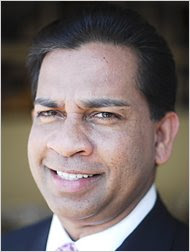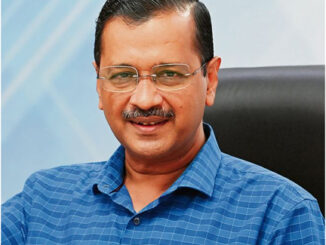

On December 1, 1955 Park Rosa was arrested for refusing to move to the back of a bus and give her seat to a white passenger in Montgomery, Alabama which triggered a wave of protests December 5, 1955 that reverberated throughout the United States. (Editor)
“Injustice anywhere is a threat to justice everywhere.”-Martin Luther King Jr.
Guyanese, and all West Indians, can proudly lay claim to a great American-Shirley Chisholm. Born in Brooklyn, New York, on November 30, 1924, Chisholm was the oldest of four daughters to immigrant parents Charles St. Hill, a factory worker from Guyana, and Ruby Seale St. Hill, a seamstress from Barbados. She was one of America’s greatest catalysts of change, decades ahead of her time.
“You must be the change you want to see in the world.” – Mahatma Gandhi.
There is a little bit of Shirley in all of us, some more than others. In 2006, I got more involved in the struggle to change the system, include the voices of the oppressed and exploited, confronting treachery and evil in America, and striking at the root of evil-with my blood, sweat and tears! Serphin Maltese, a 30-year entrenched incumbent who was the powerful Chairman of his Party and cronies introduced a bill to legalize racial profiling in NY State to make minorities official second class citizens. He got the required support from hypocritical Democrats for the perverse idea to become law-even beholden minority Assembly members who were also so-called political brokers in Queens.
These opportunists put their narrow, selfish interests above disenfranchised minorities to protect and advance their own self-interests at their constituents’ expense and peril. This bill was going to put us back to the Jim Crow era in NY State, and eviscerate the civil rights and liberties previous generations fought so hard to forge.
“The rights of every man are diminished when the rights of one man are threatened.”- John F. Kennedy.
I realized that although I was a lawyer, I could not make the necessary changes. I would be bound to follow the law, like all others in both law enforcement and the judicial system. Our hands would be tied, and generations would be trapped by a racist, bigoted law that was going to put social, economic and political development hundreds of years back to the pre-civil rights era. Inspired by the doctrine of the great martyrs and leaders, I had to launch a campaign to defeat institutional injustice, raise awareness about the putrid issues they stood for, and ensure that, win or lose, our children were not going to be officially relegated to and stereotyped as official second class citizens. Only political courage and change could bring about a solution.
“I was made, by the law, a criminal, not because of what I had done, but because of what I stood for, because of what I thought, because of my conscience.” (Statement during trial, 1962)-Nelson Mandela
Consequently, I embarked on a political pilgrimage. Although I was the only Democratic candidate, I sought, but did not get the backing of the Queens Democratic Organization. In fact, other Democratic officials hypocritically crossed party lines to support Maltese. I was treated like a pariah, and shunned from institutional politicians, but embraced by regular folks. I always put people above politics, and progress over dysfunction. I championed bread and butter issues like better education, health care, housing, public safety, jobs, wages, government services, civil rights and became a loud voice for change. Thankfully, that law was never passed.
My inspiration came from Shirley Chisholm.
This phenomenal leader broke barriers by becoming the first Black woman elected to the U.S. Congress. In her seven terms as Representative from New York, she fought for education and social justice, was a founding member of the Congressional Black Caucus and the first major-party Black candidate to run for U.S. President.
As a trailblazer, Shirley Chisholm paved the way for so many of us today, whether we are running for office or advocating at the grassroots level. She once famously said, “I don’t measure America by its achievement but by its potential.”
Unbossed and Unbought, the title of her autobiography, exemplified her outspoken advocacy for women and minorities during her seven terms in the U.S. House of Representatives, overcoming what she aptly termed the “double handicap” for being both black and female. Her ideas were uplifting, her efforts were iconic, and she dared to buck and change the system for others. America has become a much better place because of the blood, sweat and tears of people like her.
“The probability that we may fail in the struggle ought not to deter us from the support of a cause we believe to be just.”- Abraham Lincoln
In 1964, Chisholm became the second African American in the New York State Legislature. In 1968, after court-ordered redistricting created a new, heavily Democratic district in her neighborhood, Chisholm won a seat in Congress, where she introduced more than 50 pieces of legislation and championed racial and gender equality, the plight of the poor, and ending the Vietnam War. She was a co-founder of the National Women’s Political Caucus in 1971, and in 1977 became the first black woman and second woman ever to serve on the powerful House Rules Committee.
Inevitably, discrimination hampered Chisholm’s quest for the 1972 Democratic Party presidential nomination. She was blocked from participating in televised primary debates, and after taking legal action, was permitted to make just one speech. Still, her impact was substantial. She entered 12 primaries and garnered 152 of the delegates’ votes (10% of the total), despite an under-financed campaign and contentiousness from the predominantly male Congressional Black Caucus.
When she left Washington in 1983, she said she did not want to go down in history as “the nation’s first black congresswoman” or, as she put it, “the first black woman congressman…I’d like them to say that Shirley Chisholm had guts,” she said. “That’s how I’d like to be remembered.”
Those of us who have fought the system to make changes to uplift our fellow beings and bring progress for generations to come, can take counsel from and relate to this extraordinary and courageous woman.
(The author is a civil rights activist and community advocate. As President of the Baldeo Foundation and Liberty Justice Center, he has continued to fight for equal rights, dignity and inclusion in the decision-making process. He can be contacted at the Baldeo Foundation: (718) 529-2300)




Be the first to comment